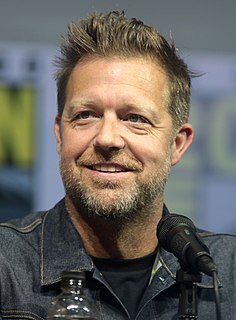Top 55 Quotes & Sayings by David Leitch
Explore popular quotes and sayings by an American actor David Leitch.
Last updated on April 18, 2025.
I think the biggest thing you take from the stunt world is your understanding of the filmmaking process. For years, you've worked with every other department closely. You know hair, makeup, wardrobe, special effects, and you know what everybody's needs are and their expectations. You also know how to collaborate with them.




















